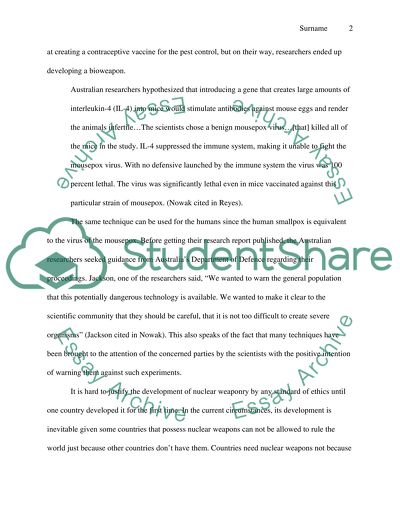Cite this document
(“Ethics of Biological Warfare Essay Example | Topics and Well Written Essays - 1000 words”, n.d.)
Ethics of Biological Warfare Essay Example | Topics and Well Written Essays - 1000 words. Retrieved from https://studentshare.org/military/1433720-ethics-of-biological-warfare
Ethics of Biological Warfare Essay Example | Topics and Well Written Essays - 1000 words. Retrieved from https://studentshare.org/military/1433720-ethics-of-biological-warfare
(Ethics of Biological Warfare Essay Example | Topics and Well Written Essays - 1000 Words)
Ethics of Biological Warfare Essay Example | Topics and Well Written Essays - 1000 Words. https://studentshare.org/military/1433720-ethics-of-biological-warfare.
Ethics of Biological Warfare Essay Example | Topics and Well Written Essays - 1000 Words. https://studentshare.org/military/1433720-ethics-of-biological-warfare.
“Ethics of Biological Warfare Essay Example | Topics and Well Written Essays - 1000 Words”, n.d. https://studentshare.org/military/1433720-ethics-of-biological-warfare.


